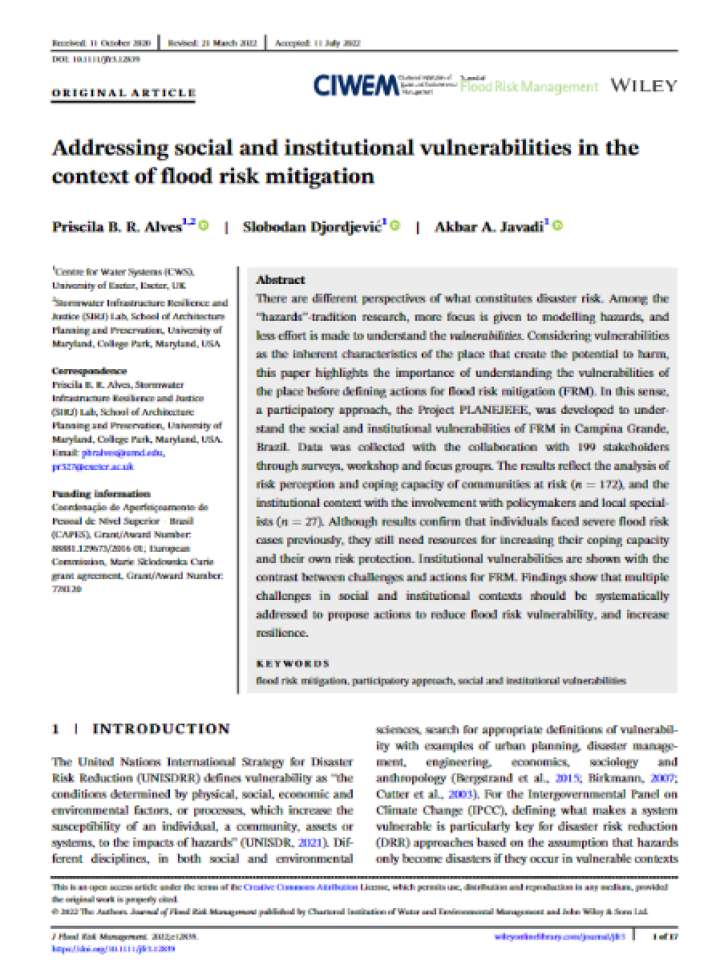Addressing social and institutional vulnerabilities in the context of flood risk mitigation
This paper highlights the importance of understanding the vulnerabilities of the place before defining actions for flood risk mitigation (FRM). This is in consideration of vulnerabilities as the inherent characteristics of the place that create the potential to harm. This study examines a participatory approach, the Project PLANEJEEE, which was developed to understand the social and institutional vulnerabilities of FRM in Campina Grande, Brazil with the aim of demonstrating how participatory planning can be embedded in the search for risk mitigation solutions in developing countries.
This paper finds that residents faced severe previous flood risk events in the past and have concerns about the future floods. The results also indicate that they still need resources for increasing their coping capacity and their own risk protection. Institutional vulnerabilities are shown with the contrast between challenges and actions for FRM. Findings show that multiple challenges in social and institutional contexts should be systematically addressed to propose actions to reduce flood risk vulnerability, and increase resilience.
Explore further
